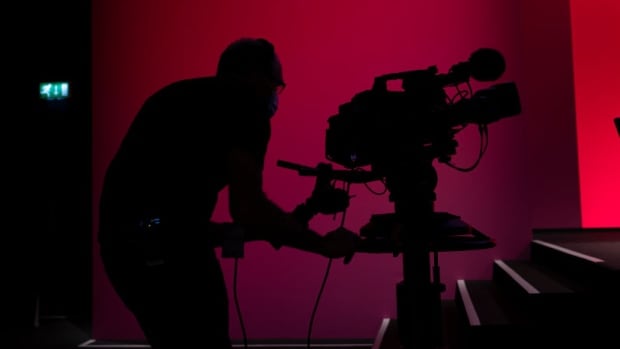Threatened Hollywood strike could ripple into some projects in Canada

More than 60,000 people who work behind the scenes on U.S. film and television began casting ballots on Friday on whether to give their union a strike mandate, which could lead to a mass walkout and Hollywood's biggest disruption to production since the 1940s.
The vote was announced after months of talks broke down between the International Alliance of Theatrical Stage Employees (IATSE) and the Alliance of Motion Picture and Television Producers (AMPTP) over two agreements covering U.S. film and television productions.
The union has been negotiating for better quality-of-life conditions â€" longer breaks during a workday, shift turnaround provisions and assurances that members won't have to work so many consecutive hours on set that they become exhausted.
Messages from union members, writing anonymously, have been pouring in via social media, describing onerous working conditions.
"I was the prop master on a big budget network show. Exhausted, biking home from the stage one night, I was hit by a car and my neck was broken and several vertebrae were cracked," writes one worker on the Instagram feed ia_stories.
"My first thought when I awoke in the hospital was that I had to get to work the next day for a big stunt scene."
The contract dispute has drawn support for the union from a number of celebrities, including Josh Ruben, Seth Rogan, Ben Stiller and Lily Tomlin.
I just spent 9 months working with an incredibly hard working crew of film makers through very challenging conditions. Totally support them in fighting for better conditions.<a href="https://twitter.com/hashtag/IATSE?src=hash&ref_src=twsrc%5Etfw">#IATSE</a>
—@RedHourBenOur films and movies literally would not exist without our crews, and our crews deserve better. <a href="https://t.co/hFMCmWzUVT">pic.twitter.com/hFMCmWzUVT</a>
—@Sethrogen"It's an issue of mental and physical well-being, and just long, extensive hours working," IATSE director of Canadian affairs John Lewis told CBC News.
Streaming residualsThe union is also fighting for streaming residuals and higher pay for its lowest-paid workers.
It wants fair compensation for crews working on shows for online streaming services, Lewis said, after "most unions and guilds took discounts to allow studios to establish this new genre or platform for production, and now it's well-established with big budgets. And we don't think those discounts are necessary or appropriate any more."
Today, workers on certain “new media†streaming projects are still paid less, even on productions with budgets that rival or exceed those of traditionally released blockbusters.
—@IATSEAlthough Canadian union members aren't affected by the possible strike authorization, there could be headaches for some U.S. productions in Canada should a strike go ahead.
There are typically "a handful" of crew members from the U.S. who work north of the border on U.S. film or TV projects and are covered by one of the two collective agreements, said Lewis.
"It's rare to have no U.S. crew at all, particularly [on] the higher budgeted U.S. productions."
IATSE hopes the vote on the strike mandate will spur the studios to come back to the table and negotiate, he added.
"In the event â€" and we hope it doesn't come to this â€" there is a labour stoppage, it could impact some productions in Canada."
He said his office has not yet heard when a strike might occur, should union members authorize a walkout.
Producers addressed 'economic realities'The AMPTP disputes the union's characterization that the alliance has been negotiating in bad faith.
"The AMPTP put forth a deal-closing comprehensive proposal that meaningfully addresses the IATSE's key bargaining issues," it said in a statement.
"When we began negotiations with the IATSE months ago, we discussed the economic realities and the challenges facing the entertainment industry as we work to recover from the economic fallout from the COVID-19 pandemic."
Strike authorization needs 75% 'yes' voteThe union members are voting until Sunday night, with results expected to be announced Monday. IATSE represents a wide range of workers in creative positions, including directors of photography, costume and set designers, and hair and makeup artists.
The threshold to pass strike authorization is a "yes" vote of 75 per cent.
IATSE also has the support of 118 members of the U.S. Congress, who signed a letter sent Thursday to the head of the industry's alliance, saying "these workers have risked their health, working through the COVID-19 pandemic," to keep film and TV productions running, and they have the right to "adequate sleep, meal breaks and living wages."
0 Response to "Threatened Hollywood strike could ripple into some projects in Canada"
Post a Comment